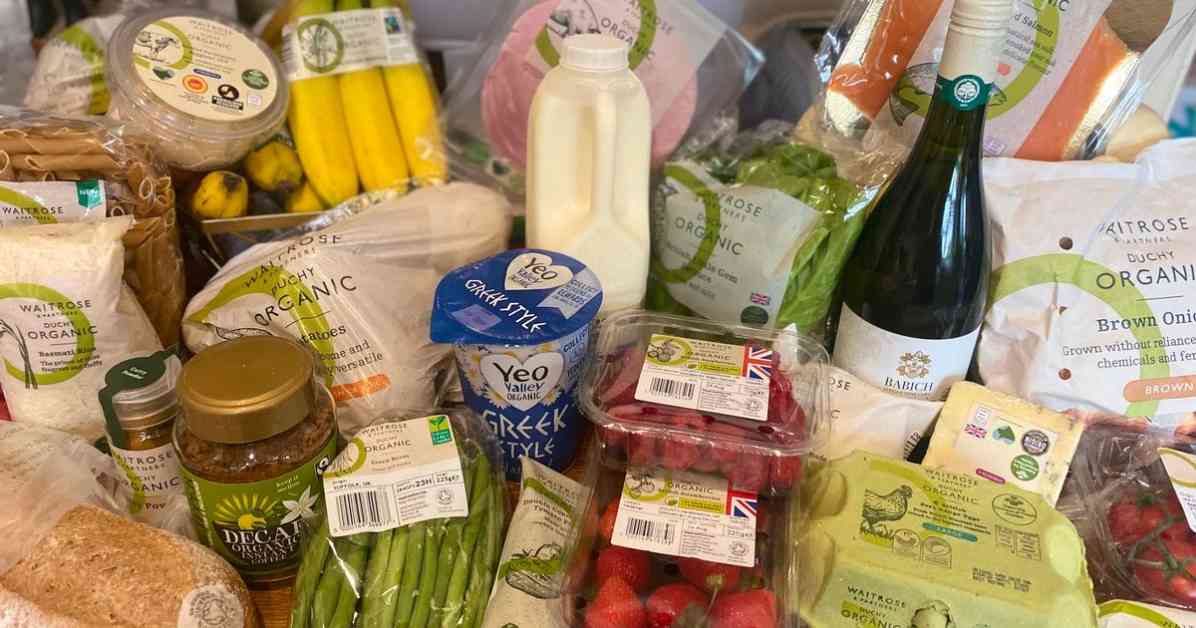Organic food has become increasingly popular in recent years as more people become conscious of the impact of their food choices on their health and the environment. With campaigns like ‘Organic September’ encouraging individuals to consider the benefits of switching to an organic lifestyle, many are curious about the potential advantages of eating organic food exclusively for a week.
The Benefits of Choosing Organic
Organic food is produced using farming methods that avoid the use of synthetic chemicals, pesticides, and genetically modified organisms. This means that organic produce is free from harmful substances that can have long-term effects on human health. The Soil Association sets strict standards for organic farming, ensuring that organic products are grown and processed without the use of artificial fertilizers and pesticides.
In addition to being better for human health, organic agriculture is also beneficial for the environment. Organic farming practices promote biodiversity, protect soil health, and reduce pollution. By choosing organic, consumers can support sustainable farming methods that prioritize the well-being of the planet and future generations.
The Challenges of Going Fully Organic
While the benefits of organic food are clear, there are challenges that come with exclusively consuming organic products. One of the main barriers for many people is the cost of organic food, as it tends to be more expensive than conventionally grown produce. Additionally, the availability of organic products in mainstream supermarkets can be limited, making it difficult for consumers to do a full organic shop.
Journalist Dianne decided to take on the challenge of eating only organic food for a week to see how it would impact her health and wallet. She found that while some supermarkets offered a limited selection of organic goods, Waitrose had the largest range of organic products, making it possible for her to complete a full organic weekly shop for her family meals.
The Cost of Going Organic
Dianne’s full organic shop at Waitrose totaled £144.35, which was approximately £50 more than her usual weekly grocery bill. The most significant expense was organic meats, with items like beef mince and pork steaks costing more than their non-organic counterparts. While some organic vegetables were only slightly more expensive, the price of organic meats was notably higher.
Despite the increased cost, Dianne found that making the switch to organic had positive effects on her health. By consuming whole foods and avoiding ultra-processed products, she was able to make nutritious meals for her family and even managed to lose two pounds over the course of the week. This weight loss was a welcome surprise, as Dianne had not approached the organic diet as a weight loss strategy.
The Verdict on Going Organic
After her week of eating only organic food, Dianne reflected on the benefits and challenges of making the switch. While organic farming methods are more environmentally friendly and support sustainable agriculture, the high cost of organic meats may be prohibitive for some consumers. Dianne noted that while she enjoyed the taste of some organic products, the price of items like organic chicken was difficult to justify on a regular basis.
Despite the challenges, Dianne was determined to make changes in her shopping habits to incorporate more organic products in her diet. She recognized the value of choosing organic for both her health and the environment, and planned to continue seeking out organic options in her weekly shop. While the cost of fully organic shopping may be daunting, Dianne saw the benefits of making smaller swaps, particularly when it came to fruits and vegetables.
In conclusion, while the decision to go fully organic for a week may come with challenges, the potential benefits for both personal health and the environment are significant. By making conscious choices to support organic farming practices, consumers can contribute to a more sustainable food system and prioritize their own well-being. While the cost of organic food may be higher, the long-term benefits of choosing organic far outweigh the financial investment. As more consumers make the switch to organic, the availability and affordability of organic products are likely to improve, making it easier for everyone to enjoy the benefits of organic living.

